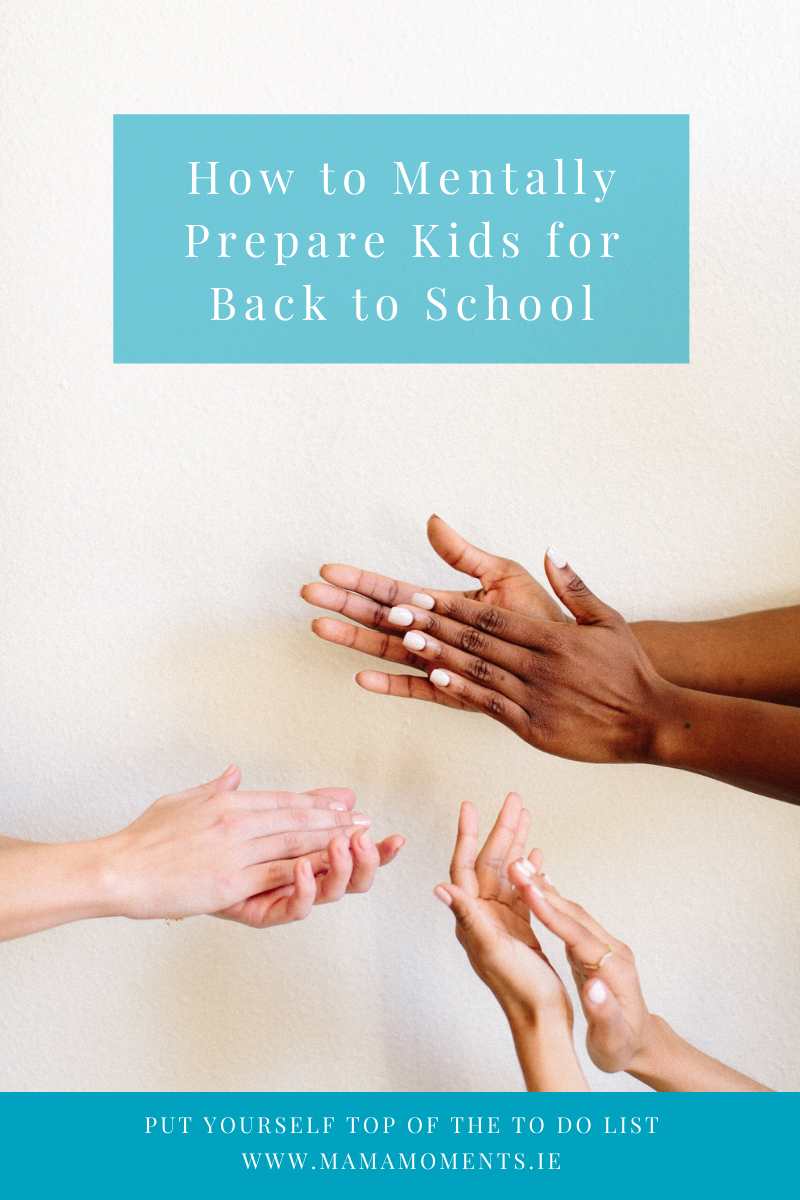 Back to school has looked a little different over the last year and a half with the added elements of social distancing and strict handwashing regimes. It may be that, come the end of the month, not much has changed as we prepare our kids for the return to the school calendar. Even with all of the changes and uncertainties we’ve faced over the last eighteen months, we still want our kids to have a happy, safe, and engaging year at school. In a world that keeps spinning under duress, how can we mentally prepare our kids as they set to return to school this autumn under a prevailing cloud?
Back to school has looked a little different over the last year and a half with the added elements of social distancing and strict handwashing regimes. It may be that, come the end of the month, not much has changed as we prepare our kids for the return to the school calendar. Even with all of the changes and uncertainties we’ve faced over the last eighteen months, we still want our kids to have a happy, safe, and engaging year at school. In a world that keeps spinning under duress, how can we mentally prepare our kids as they set to return to school this autumn under a prevailing cloud?
Take Away the Uncertainty
It can be overwhelming heading back into a school year that feels a little unbalanced after a long summer holiday. Add in the pressures of the ever-present pandemic and our kids can feel that uncertainty creep in. Will they have to wear masks? Are social distancing rules still in place? Are school closures likely again? Our kids will have questions. To be honest, we will too. Helping to take away that uncertainty from our kids will encourage a balance with the ambiguity surrounding going back into the classroom for them.
Our kids look to us for answers. In a world such as this, those answers are not always forthcoming which can amplify not only their fears but our own worries as well. The best we can do is to keep them informed about guidance and what their school day may look like. In the same way, our kids look to us for safety and reassurance. By curbing our own fears we can ease the unconscious worry they may feel about being at school. Have a chat with the school and see what precautions will be in place for the new year. Ask every question you have and express your concerns. When you feel confident and happy about the return to school, you can help your child feel secure too.
Be Compassionate and Encourage Conversation
Back to school can be a difficult occasion for some kids no matter the kind of year it is. For this reason, encouraging open conversation about your child’s fears and worries and showing empathy, concern, and compassion for your child when they tell you what may be worrying about or what’s bothering them, can help make the transition from the summer holidays to the school routine a little easier. Help your child to express themselves in a non-judgemental way.
Keep An Eye on Them
School can be a great concern for stress and anxiety for some children. Watch for any red flags which may give you warning signs as to their state of mind. Has their appetite dropped? Are they sleeping less or inconsistently? Are they ill with headaches or stomach aches? Or has their attitude changed with anger being a primary concern? Change in habits and moods can be a sign that something is going on in our child’s life. Be open with them and show your concern if their behaviour is unrecognisable.
Manage A Routine
Actively reverting to a normal routine as you would throughout the year can help refocus and guide our kids to the idea of back to school. A good sleep routine and a manageable meal schedule will not only help them ease back into the expected day to day timetable come the first day of school, but can give them comfort in something familiar when anxious thoughts about the return to school creep in.
One Size Doesn’t Fit All
Remember, every single child is different. One child may experience this transition back to school in an exciting and fulfilling way, while another may be a turbulent mass of worry and apprehension. You know your individual children inside and out, and you will recognise how they are feeling about back to school. Recognise their characteristics and personalities and guide them in a supportive manner so that they have a great first week back with their friends. Hopefully, everything after that will be smooth sailing.
Make an Effort to be Present
Finally, we all remember the anxious excitement of that first day back at school. Filled with butterflies as we met up with our friends once again and saw our teachers dodgy 90’s haircuts. But for our kids, they have had more time at home than usual the last couple of school years which has changed the dynamic of our children’s school life. As we prepare them for back to school, try to make yourself as available to them as possible. We may not understand or recognise the fears or worries they may have, pandemic or not, as we cannot walk a day in their shoes. School life is not the same as when we were in school. Allow them to seek you out when they need you so you can support them as much as possible in what is possibly another confusing and complicated school year for them.

